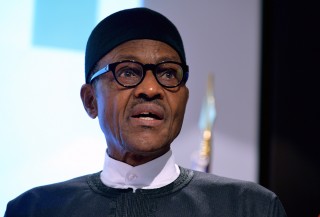Nigeria celebrated its annual Democracy Day on Wednesday, the 29th of May 2018, a day which heralded a new direction for politics 19 years ago. It was the day former president Olusegun Obasanjo was sworn in as Nigeria’s first democratic leader for the fourth republic.
Before then, the country had an unprecedented history of authoritarian rule, with 28 of its 58 post independent years spent under a military regime.
General Abdulsalami Abubakar’s handover to President Olusegun Obasanjo on May 29, 1999, signified the beginning of yet another turning point for Nigeria’s democracy, with the fourth republic coming after three other attempts to introduce civilian rule. However, it seems Nigeria has not been able to come to terms with building institutions for democracy.
Ventures Africa conducted a brief online poll earlier this week, to ascertain, using the opinions of Nigerians online, the extent to which Nigeria has been able to imbibe the true values of Democracy using metrics developed by the Economics Intelligence Unit (E.I.U). The Democracy Index, as it is called, uses five dimensions: The nature of electoral processes, Functioning of government including checks and balances, Political participation, Democratic political culture, and Civil liberties.
The poll, conducted online, was voted in by an average of 70 voters. 78 percent of voters believe that elections in Nigeria are not free and fair, while only 7 percent said they were; 46 percent of voters believed military rule was better than civilian rule in Nigeria, more than the 32 percent who believed that Nigeria’s civilian rule is better; 61 percent of the voter believed Nigeria’s justice system is deeply flawed, with 30 percent believing that it is irredeemable; and nearly all of the respondents believed that their fundamental human rights in Nigeria have not been respected.





87 percent believe that the media in Nigeria is not free to expose cases of corruption without fear of reprisal or retaliation. While 74 percent believe that minority groups in Nigeria are not afforded the same rights as majority groups.
Nigeria’s present reality with democracy
While an average of 70 voters is not representative of the Nigerian population, the opinions seem to tally with previous studies done on aspects of Nigeria’s democracy.
For example, a study by Minority Rights Group International showed that discrimination against minority groups in Nigeria have often occurred under tensions over political influence, and resource control; both of which are used to discriminate against groups.
The Ogoni people and other minority ethnic groups in the oil-rich Niger Delta have been denied compensation after their farmlands and rivers were destroyed through oil exploration, while they have also been denied a seat at the table of oil profits. The Nigerian army attack on the Shiite Islamic minority group, and the arbitrary imprisonment of its leader El-Zakzaky, since 2015 is also an example of minority groups not afforded the same rights as its majority.
In other cases, it has been documented, mostly by human rights groups such as Amnesty International, that Nigerian journalists are being jailed for writing stories condemning corruption in public offices. Nigeria’s justice system being flawed is not far-fetched, as data from the Nigerian Bureau of Statistics last year showed that almost three-quarters of Nigeria’s prisoners are serving time without being sentenced. Nigerian judges and Senior lawyers have time and time again been accused of corruption and pronouncing partial judgement after receiving bribes.
Nigeria’s Democracy is not perfect, but it can be improved
The results of the online polls, though inconclusive, show that there is still much to be done regarding democracy in Nigeria, despite its setbacks. The solution, as it were, will not arrive by “throwing the baby out with the bathwater,” as Nigeria’s president suggested last week, but to remove the baby, wipe it with a towel, lay him gently in the cradle, and then throw the bathwater out.
President Muhammadu Buhari, while speaking last week at the Aso rock Abuja, suggested that military rule in Nigeria has been better than civilian rule when he said former Head of State General Sani Abacha improved infrastructures in Nigeria. “No matter what opinion you have about Abacha, I agreed to work with him and the PTF road we did from here to Port Harcourt, to Onitsha, to Benin and so on… On top of other things in the institution, education, medical care and so on.” Buhari said, indirectly saying afterwards that Nigeria’s military era is better than Nigeria’s democracy.
He also implied that Nigeria’s presidents after Abacha have been corrupt, forgetting that the military head he praised for social infrastructures was also in charge of one of the biggest heist by an authoritarian leader in history.
Buhari seemed to imply that the development of social infrastructures should whitewash Abacha’s human rights infringements including the use of arbitrary detention and harassment to silence its most outspoken critics. Many features of Nigeria’s military government are still present now, top of which are the infringements on human rights.
“As an ideal, democracy aims essentially to preserve and promote the dignity and fundamental rights of the individual, to achieve social justice, foster the economic and social development of the community,…” are some of the words of the Universal Declaration on Democracy.
For that reason, rather than reminiscing on Nigeria’s infamous military past to emphasize why democracy, now, is “failing,” Nigeria should work towards removing those shared features our past have with the present and work on building its democracy, beginning with restoring human dignity and promoting the rights of every individual. What is the logic behind having social infrastructures, when people are not at the centre of development?
Rome’s democracy, on which most of present-day civilization is rooted on, was not built in a day, but the Romans were laying the bricks every hour, not trying to tear it down. Nigeria too needs to build its own democracy, and not raise memorials to authoritarian rule.








